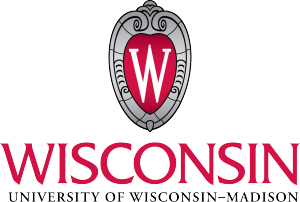Our Mission
The MTWC will increase awareness of career opportunities in the transportation industry and promote development of high-skilled, high-demand transportation workers by facilitating partnerships and improving communication and sharing across workforce development organizations.
Strategies, Goals, and Actions
Strategy 1: Build and Sustain a Network of Transportation Organizations and People
- Connect the Midwest transportation community by:
- Maintaining a database of stakeholders.
- Creating email and social media campaigns.
- Offering webinars.
- Fostering Midwest communities of practice.
- Facilitating working groups.
- Collaborate with other regional centers to build the National Network for the Transportation Workforce (NNTW) by:
- Developing content consistent with other centers to build a national database of resources.
- Promoting all regional centers activities on the MTWC website.
- Work closely with the MTWC Advisory Board to identify new trends, challenges, and initiatives across the region by:
- Ensuring new development and practices are promoted and shared.
Strategy 2: Facilitate Partnerships
- Provide opportunities for partnership development between workforce stakeholders: public and private industry, educational institutions, K-12 to post-secondary, unions, and professional and student organizations by:
- Convening meetings with a cross-section of workforce development stakeholders.
- Facilitate twenty partnerships by December 2016 by:
- Meeting with individual organizations to understand common interests and goals.
- Tracking partnership development and outcomes.
Strategy 3: Utilize a Data-Driven Approach
- Understand transportation workforce issues and gaps in the Midwest by:
- Utilizing MTWC compiled educational resources to develop career pathways analysis.
- Utilizing new sources of data to develop pipeline statistics.
- Producing demographic projections for the Midwest.
- Producing visualizations of data.
- Understand transportation workforce development stakeholder behavior by:
- Producing analytics on Social Media Channels.
- Refining outreach strategies on Social Media Channels.
Strategy 4: Promote and Create Workforce Development Initiatives
- Promote initiatives that address gaps in information, demographic representation, and underserved populations.
- Advance workforce development movement on MTWC focus areas of career awareness, career pathways, stackable credentials, and promoting and sharing best workforce development practices by:
- Implementing a “Success Stories” Campaign.
- Pursuing funding to carry out initiatives.
Strategy 5: Maintain the MTWC Clearinghouse of Transportation Resources
- MTWC website will be a first-stop for transportation workforce resources: programs, activities, and best practices in the Midwest by:
- Developing processes to collect and update resources.
- Engaging stakeholders to provide resources that may not be on the internet.
- Promoting successful practices as featured content.
- Initiating a Clearinghouse Campaign to review and add more resources to the clearinghouse.
Strategy 6: Serve as a Backbone Organization in the Region
- Implement a Collective Impact strategy to transportation workforce network building in the Midwest by:
- Providing continuous communication to transportation stakeholders.
- Leveraging partnerships for new initiatives.
- Convening meetings.
- Meeting with stakeholders to find common ground.
- Establish a sustainable center that serves all transportation stakeholders by:
- Pursuing funding to meet cost-share and post-FHWA grant funding.
- Working with MTWC Advisory Board to develop a plan for funding.
Strategy 7: Champion Transportation Workforce Research
- Build the literature of transportation workforce research by:
- Collaborating with the NNTW partners on proposals.
- Collaborating with TRB, AASHTO, industry and other stakeholders to identify, develop, and draft research needs statements.
- Undertaking research projects.

